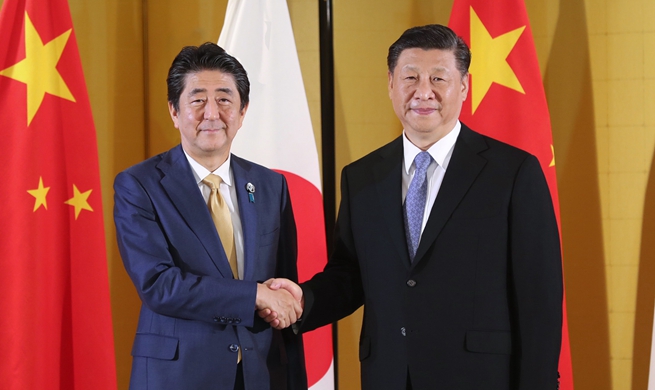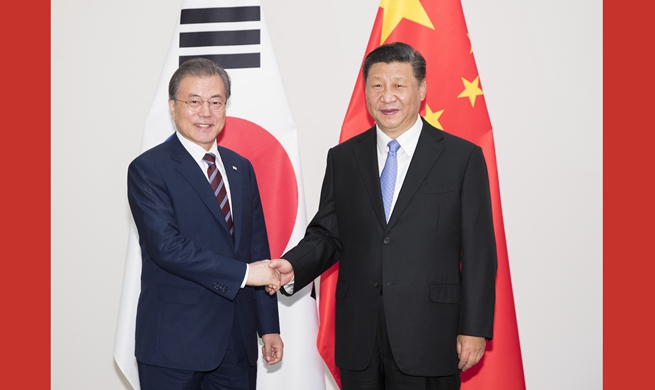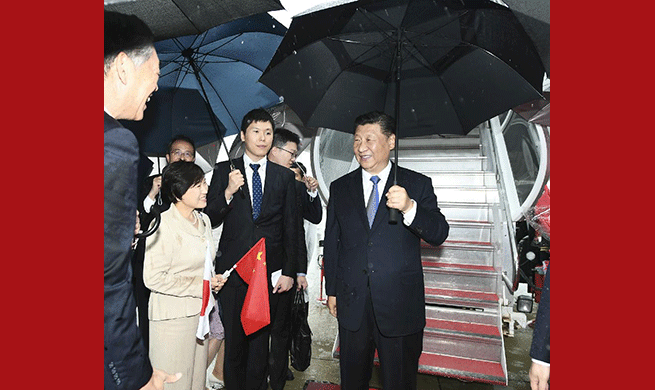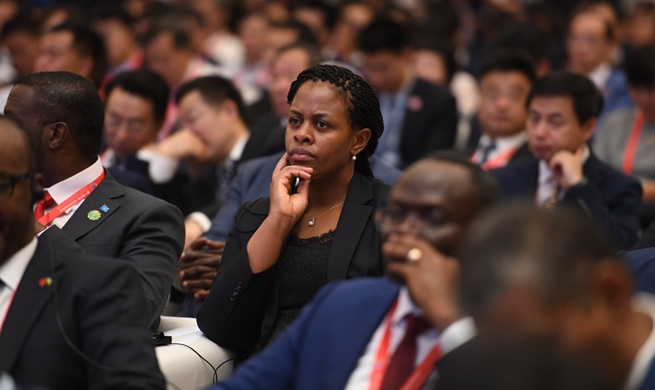NEW YORK, June 27 (Xinhua) -- The U.S. economy has seen increasing downside risks against the backdrop of trade tensions and slower global economic growth, analysts have said.
The Commerce Department said the U.S. economy grew at 3.1 percent in the first quarter, according to its third estimate.
The figure was in line with the second estimate because the upward revisions to nonresidential fixed investment, exports, state and local government spending, and residential fixed investment were offset by downward revisions to personal consumption expenditures and inventory investment and an upward revision to imports, the department said.
However, some economists saw the 3-percent increase a short-living one, to be followed by a 2-percent increase in the second quarter.
Economic research company Capital Economics said in a report Thursday that it expected U.S. GDP growth to slow sharply for the rest of the year and slow from 2.3 percent in 2019 to 1.2 percent in 2020, before looser financial conditions prompt a recovery to 2 percent in 2021.
The report attributed the slowdown to the fading of the impact brought about by last year's fiscal stimulus, and slowdown in other parts of the global economy.
It warned that a potential escalation in trade tensions would further hurt the GDP.
Henry Huang, professor at the Sy Syms School of Business at Yeshiva University, said the U.S. economy is near the end of its expansion and risks of entering a recession are mounting right now.
Several economic indicators have pointed to mounting pressures on the U.S. economy lately.
The Conference Board's consumer confidence index, a key measure of the U.S. economy, slipped to 121.5 in June, the lowest since September 2017. The May reading was downwardly revised to 131.3.
The group's present situation index, which is based on consumers' assessment of current business and labor market conditions, decreased from 170.7 to 162.6. The decrease was driven by a less favorable assessment of business and labor market conditions.
Lynn Franco, senior director of economic indicators at The Conference Board, said in a statement that the escalation in trade and tariff tensions earlier this month appears to have shaken consumers' confidence.
"Although the Index remains at a high level, continued uncertainty could result in further volatility in the Index and, at some point, could even begin to diminish consumers' confidence in the expansion," said Franco.
"It is the first real sign that the recent weakness in the incoming activity data is now spreading to consumers," Michael Pearce, senior U.S. economist at Capital Economics, said in a note.
He said while the fundamentals for consumption growth still appear solid overall, consumption growth will be slowing if the rest of the economy is rapidly losing momentum and taking the jobs market with it.
Analysts also noted softening employment growth and gave a dimming outlook.
U.S. job growth slowed sharply in May, adding 75,000 jobs, and wages rose less than expected, raising fears that a loss of momentum in economic activity could be spreading to the labor market.
A separate report released Thursday by Capital Economics points to a subdued 125,000 gain in non-farm payrolls in June, suggesting that the labor market is succumbing to the broader slowdown in economic growth.
The unemployment rate should remain at 3.6 percent in June, but will begin rising in the second half of the year, according to the report.
Part of the slowdown in employment growth was explained by dimming prospects for the manufacturing sector, analysts said.
With global economic growth subdued and the trade tensions weighing on exports, manufacturing employment is likely to remain stagnant over the coming year, economists at Capital Economics said.
Federal Reserve Chairman Jerome Powell earlier this week acknowledged the changing economic situation since the start of May.
He said crosscurrents have reemerged, with apparent progress on trade turning to greater uncertainty and with incoming data raising renewed concerns about the strength of the global economy.
The heightened concerns over trade developments "may have contributed to the drop in business confidence in some recent surveys and may be starting to show through to incoming data," Powell noted.













